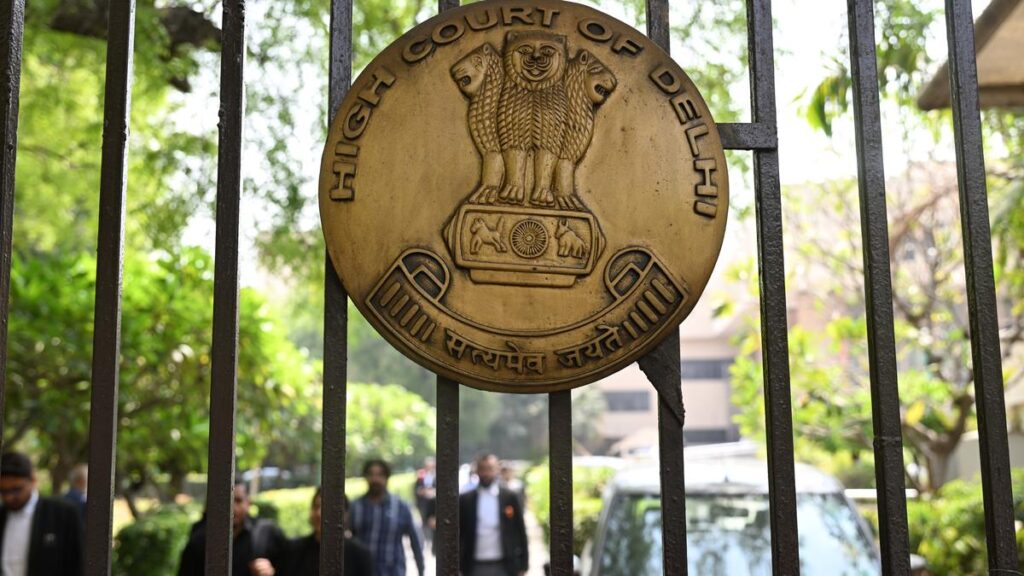In a move that could significantly improve diagnostic accuracy and patient safety, the Delhi High Court has directed the Union government to notify long-pending minimum standards in the collection of medical samples or specimens by laboratories and collection centres, and guidelines to transport them, within the next three months.
The order, if implemented, could help curb inaccuracy in test reports, especially when the samples are collected from the home of a patient, experts said. It could also reduce unsafe handling of biological specimens, and treatment errors caused by degraded samples, potentially saving lives, they added.
Currently, India lacks specific regulations governing how medical samples, such as blood, urine, or swabs, are collected, stored, and transported to diagnostic laboratories. This regulatory gap has led to widespread inconsistencies, particularly with private labs and home sample collection services that operate without strict oversight.
Wrong results
“Patients often assume their test results are scientifically reliable. But when samples are exposed to extreme heat or delayed in reaching the lab, the entire result can become invalid — without anyone realising it,” Dr. Rohit Jain, who had filed a public interest litigation (PIL) on the issue in 2019, said.
“Wrong results lead to wrong treatment. That’s not just unethical — it’s dangerous,” Dr. Jain said.
The High Court, while hearing Dr. Jain’s plea on July 18, recorded the Union Health Ministry’s assurance that the draft minimum standards, which the Ministry said had already been approved by the Directorate General of Health Services (DGHS), were in advanced stages of being notified.
The plea, filed through advocate Mrinmoi Chatterjee, stated that despite the directions of the Delhi HC in January 2023, no guidelines on minimum standards for sample collection had been formulated by the Centre.
The Health Ministry, in its latest status report to the court, said the draft minimum standards were currently undergoing legal vetting by the Legislative Department of the Union Ministry of Law and Justice.
The Ministry said four expert sub-committees had been formed with specialists in pathology, biochemistry, haematology, and microbiology to formulate “minimum standards for sample collection and sample transport policy”.
Once approved by the National Council for Clinical Establishments, after public consultation, the process of publishing the guidelines in the The Gazette of India would be initiated.
The Ministry additionally said two guidelines issued by the Indian Council of Medical Research (ICMR)-National Institute of Virology (NIV) during the COVID-19 pandemic were currently in place which, when read in conjunction with the draft minimum standards, offer comprehensive laboratory guidance in maintaining biosafety and ensuring quality specimen handling.
But Dr. Jain remains sceptical. “These draft standards have been stuck for two years. Meanwhile, nothing has changed on the ground,” he said.
“There are aggregators and collection agents who have no medical training, collecting samples from people’s homes. They don’t refrigerate them, don’t process them in time, and no one is tracking how long it takes before the sample reaches the lab,” Dr. Jain said, when asked why private laboratories should self-regulate.
According to him, there are well-established scientific windows within which samples must be analysed —sometimes within 30 to 60 minutes of collection. “In Delhi’s 45°C heat, a delay of even a few hours can completely distort test results. But the government has no binding standard for this. So why would private labs regulate themselves?” he said.
The ICMR has issued specific guidelines for transporting specimens related to high-risk pathogens and samples for COVID-19, but those, he said, were limited in scope and not enforceable across all clinical establishments.
“Lab test results influence over 70% of treatment decisions globally. When they are wrong, they harm patients and erode trust in the medical system,” Dr. Jain added.
“There is no law specifically [for sample collection and transport], which is why this petition was filed. We want guidelines to be released by the government,” Alok Ahuja, former Professor of Pathology, National Accreditation Board for Testing and Calibration Laboratories, and National Accreditation Board for Hospitals and Healthcare Providers, told The Hindu.
“The quality of samples must be maintained and guidelines must be instituted. To have a law is the need of the hour,” he added.
“I am very happy that the court has been very positive to the demands of the pathologist that a law must be instituted,” Dr. Ahuja said.
Published – July 26, 2025 09:17 pm IST


